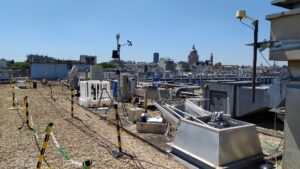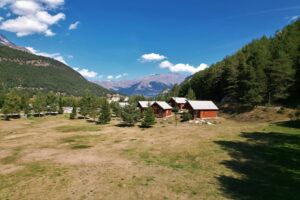PaleoJump, the new database on past climates
The Earth’s climate has undergone abrupt transitions in the past, often linked to the crossing of tipping points. There is an urgent need to understand how and why this happened, as anthropogenic greenhouse gas emissions could potentially trigger similar tipping points this century, leading to irreversible changes in climate and the environment. The PaleoJump database (paleojump.github.io), published in Scientific Reports, is designed to contribute to this understanding. The archive gives users access to high-quality data on past climates, which is particularly useful for studying tipping points.
Paleo datasets, which consist of various proxy indicators that provide indirect evidence of past climate conditions, play an important role in climate science. As well as enabling scientists to reconstruct the Earth’s climate history, information on the evolution of past climates is regularly used to evaluate the performance of the climate models we rely on to assess future climate change.
However, not all datasets are equal in terms of quality and relevance. The source of the palaeodata, as well as their temporal resolution and duration, can vary considerably. This means that it is difficult and time-consuming to find relevant, high-quality records to compare with climate models or to reconstruct past climates.
The PaleoJump database is designed to solve these difficulties by including archives of relevant, high-quality, pre-assessed data for studying climate tipping points in the past. These archives are analysed using recently published automated methods for abrupt climate transitions. In this way, PaleoJump can provide climate scientists with a clearer picture of where and when abrupt transitions occurred throughout Earth’s history.
The TiPES project has received funding from the European Horizon 2020 research and innovation programme, grant agreement number 820970.
More
CNRS laboratories involved
– Laboratory of Dynamic Meteorology (LMD – IPSL) • CNRS / ENS-PSL / École Polytechnique / Sorbonne Université
Contact
Witold Bagniewski, LMD-IPSL •
Source
CNRS – INSU






